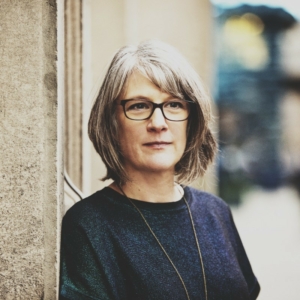Do you feel like you are or able to play the dating game? Do you enjoy your dating? After all it would be nice if we could have fun while we are looking for a relationship, that special person.
Life is for living right. If its not fun then dating can be a hard slog.
In my experience, personal and professional its all about getting your head in the game.
Is your mindset in the right place? Mindset what does that actually mean? Our mindset is a set of beliefs that shape how you make sense of the world and yourself. It influences how you think, feel, and behave in any given situation.
What we know about mindset is that if your beliefs, how you think and feel about yourself and a given situation are in a good place, then there is more chance of success.
Sports is a classic example of this, in fact as a coach we teach this in sports performance. Teaching someone, coaching someone with their mindset is as important as the physical training. Acting, dancing, job interviews all the same. If your head is in the game, if you feel good about yourself and what you are doing there is more chance of success. You will keep going, you will learn as you go along, there is no failure only feedback.
Think of dating as being very similar to job interviews and sales. It’s a numbers game.
Take job interviews, if you don’t get the job, it doesn’t mean you weren’t good enough or suitable. It can mean so many different things, someone was better than you on the day, they already had someone ear marked for it, they played safe went with the candidate they know. Maybe you didn’t even want the job. Its rare that getting a job is based on your ability to do the job.
Sales, ring 100 people, maybe make 1 sale.
You get my point.
Dating brings with it a whole range of limiting beliefs, stories and baggage.
“I am too old”
“I have been on my own too long”
“No one will want me”
And the list goes on.
Take a moment to write out all your limiting beliefs about dating and relationships. Then later on, maybe the next day, come back to them and fact check each one.
“I am too old” can you find anyone that has met someone or dated later on in life? There are people meeting, dating and falling in love at all ages. Age has nothing to do with it.
If you can find one person that has done, is doing what you want to do, then it can be done.
What stories are you telling yourself about you, others, dating and relationships? Is it a good story, is it supporting you? If not can you create and tell a new story?
Are you carrying any baggage from previous dating and relationships? Now anyone who has a relationship, or dated, probably is, that’s ok, that’s human. Trick is to be aware of your limiting beliefs, your stories, fact check, don’t buy into them. Work to create new ones.
If you had a difficult situation with one person, doesn’t mean you will with another.
Be aware of the “all men” “all women”.
Ok so, check your mindset, is your head in the game? If not I highly recommend you do some work on this, it will make such a difference.
When we feel good about ourselves and what we are doing, its way more enjoyable.
If you want some help with this feel free to email me stephaniechivers@hotmail.co.uk

We can set up a free consultation to see if coaching would be suitable for you. 6 coaching sessions for £450.
Stephanie Chivers is a coach specialising in mindset and behaviour change. Who has also done a lot of dating and successfully met a partner through dating.
Please click here to check out our membership page for further details.
Why you keep making the same mistakes in dating
Have you found yourself repeating the same dating and relationship patterns but each time it just happens to be with a different person?
Our attachment style can say a lot about who we love and why. It can explain why history seems to repeat itself. My invitation as you read this blog is to notice your own style, but, and here’s the thing, it isn’t to label or diagnose, because you can consciously change these patterns at any moment you choose to. This blog is to simply bring awareness to your patterns so that you can choose to behave differently.
What is our attachment style?
Our attachment style is a reflection of how we experienced love as a child. Most people working with attachment theory talk about four different ones; secure attachment, anxious attachment, avoidant attachment and disorganised attachment.
I’m going to break each one down into what likely happened in your childhood and how you experience that style now as an adult.
Secure attachment
When you were a child your caregivers placed boundaries, they met your emotional needs and created an environment which was predictable and felt safe. As an adult you very likely have healthy relationships with people where you are able to communicate boundaries effectively, feel comfortable and confident in dating and meeting new people and have a sense of safety in yourself when you date. You understand that love can sometimes take time to grow and like to create intimacy while still feeling independent.
Avoidant attachment
As a child it’s likely that your caregivers were emotionally unavailable and insensitive to your needs and requests for connection. It’s possible that your caregivers were intrusive in their presence but emotionally distant. As a result you learnt to disconnect from your caregiver as a coping mechanism. In your relationships you tend to over value your own time, space and independence. You very rarely, if ever ask for help – you feel you just don’t need it. Intimacy is something which feels extremely uncomfortable to you. You are less likely to seek support or therapy because there is ‘nothing wrong’.
Anxious attachment
The inconsistent displays of connection from your caregivers left you wondering as a child when your needs were going to be met. Love felt unpredictable and as a child you were constantly looking to understand if you were going to get your emotional needs met or not. As an adult this translates to lack of boundaries and people-pleasing to get the love and attention of your love interest. It can mean looking for partners who are not clear on what they want. It also means that if anyone shows you lots of love and interest, you will most likely not fancy them because it doesn’t feel like the push and pull of love that you are used to.
Disorganised attachment
Growing up your caregivers would frequently give you conflicting information about their expectations. Caregivers put you in ‘no-win’ situations whereby you would be asked to do something, heavily criticised for it, you would then do it as they asked you to only to be further criticised and punished for not doing it correctly. It leaves your nervous system in a sense of fear because you are unable to understand the parameters or ‘rules’ of any situation and constantly second-guessing yourself. What this can mean as an adult that you simultaneously seek out intimacy and the need to have it while also holding onto a fear of it which results in a back and forth and an uncertainty in how you feel.
How is this relevant to dating?
The reason it’s important to understand our style is because what we do is unconsciously go and search out to repeat the behaviours and environments that we lived in as children. It’s what our nervous system has understood to be love. When we experience the emotional and physical sensations that remind us of our childhoods, it tells our nervous system – this is love. What that can mean is that often, when we experience a rush of chemistry, a sense of excitement, it is a trigger of our attachment style. So we go into an automatic way of understanding the person, interpreting their behaviour and responding to their behaviour.
- To begin to change these patterns, it’s important to explore how we feel about ourselves in interactions with other people. Some questions to explore around dating to determine if your dating patterns are healthy.
- Do I feel safe with the other person?
- Is the other person pushing my boundaries and not respecting my ‘no’?
- When someone is communicating emotions do I panic and want to escape?
- Am I adapting my personality, likes and dislikes to fit in?
- Do I experience an overwhelming sense of rejection if someone isn’t interested and I reach out for more information, try to convince them to take me back or that I will change?
- Am I pushing people away and running for more space?
- If I need to have a conversation with the other person about my own boundaries, in a bid to avoid conflict do I just avoid the other person?
- What am I making our conversations and interactions mean about me as person and my own value?
- Do I fear that the other person will not be interested in me if I am not my authentic self?
- Do I find myself constantly wanting more time to myself and not wanting to fully commit to anyone and to keep things casual?
- If they don’t reply immediately to my messages do I go into my head about what they might be thinking or what this means?
- Am I communicating authentically my desires and wants from a place of respect for myself or instead projecting onto the other person on ‘what they should be doing’ or ‘how they are failing me’?
Once you start noticing the answers to these questions, what you can do is begin the journey to self-love, intimacy and healthy communication. Bringing our awareness to our patterns is the first step in changing them. Changing them is the next step to finding love as a place of safety.
I’m a certified and trauma-informed Sex, Love & Relationship Coach. I work 1-1 with men and women to uncover unhealthy dating patterns and support them in embodying a new narrative so they can find the partner that lights them up.
For more information see:
https://www.carlacrivaro.com/dating-for-success
If you would like to listen to her podcast, please click here.

Please click here to check out our membership page for further details.
Learning To Love – What’s Your Language?
Whether starting out dating someone or in a longer term relationship there is always a part of us looking for ‘proof’ that the other person is interested. That they love us. Sometimes it can feel as though a part of you knows that they care but you just don’t feel it. What if I told you that they were showing their love, but it just happened to be in a language different to yours?
The Language of Love
Welcome to the love languages. Gary Chapman was the first person to introduce the concept of love languages from his work as a marriage counsellor with couples. A love language is a way that we show love to another person and also the way that we experience another person showing us love.
The problem with not knowing your own love language and not knowing another person’s is that it can lead to feeling that the other person doesn’t ‘see’ you. It can feel really disheartening to feel that you are the one making the effort in your relationship but the other person doesn’t appear to feel the same way. So let’s take a look at the love languages. Have a read and see which one most resonates for you. You will have one that sticks out the most but there will also be one or two which are reasonably high too.
The Five Languages
Time
Someone whose love language is time is a person who will dedicate any type of time to you. This isn’t just about going out for dinner with you, a person with this love language enjoys spending time together even during tasks such as preparing a meal or even if you are just watching TV.
Acts Of Service
If you identify with Acts Of Service as your love language, you likely love helping people out with the smallest and even biggest of tasks. You show your love and feel most loved when someone is giving you a hand to carry the shopping to the car or maybe they take the bin out for your or cook you a meal when you are busy. They are helping you out in some way or you may find yourself enjoying helping others you care about.
Physical Touch
This love language does not need to be expressed with huge gestures of hugs and kisses, it can be quite simply, having one hand on the shoulder or arm as you’re talking. It can be holding hands while watching a film together or giving or receiving touch in some other casual way.
Words of Affirmation
This person loves to give compliments and also receive them. People who score high on this love language find that they verbalise the great qualities and achievements that they see in others and are not afraid to voice them. For them, receiving words which are positive and supportive enables them to feel seen.
Gifts
The impression here is that someone whose love language is gifts will be expecting frequent and expensive presents from partners. For someone with this love language it’s the display of thought for the other person while you aren’t with each other which promotes the feeling of love. So going to France and bringing them back a bottle of wine or passing a shop and noticing a trinket that your partner would like. With this love language it is also how the gift is given so carefully chosen wrapping paper or bag, for a person whose love language is gifts it is the whole process of receiving, opening and being thought of while away.
Now that you’ve been introduce to the love languages does that mean if someone doesn’t share the same love language as you it isn’t a perfect match? Not at all. Relationships are built around communication, listening and being present for our partners. Knowing what makes our partners feel good means that we can communicate that to them in a way they understand.
Using this information for Dating
I’m very much an observer and really listen to what people say and how they express themselves to understand what their love language might be. I also find it fun with dates who are interested in learning more about themselves, to share with them the love language quiz so I can be more mindful for how they want to experience love and also to notice when they are looking to show me love.
I’m a certified and trauma-informed Sex, Love & Relationship Coach. I work 1-1 with men and women to uncover unhealthy dating patterns and support them in embodying a new narrative so they can find the partner that lights them up.
For more information see:
https://www.carlacrivaro.com/dating-for-success
Fancy trying the quiz yourself or passing it onto someone else you know? You can try the quiz here: https://www.5lovelanguages.com/quizzes

Please click here to check out our membership page for further details.










